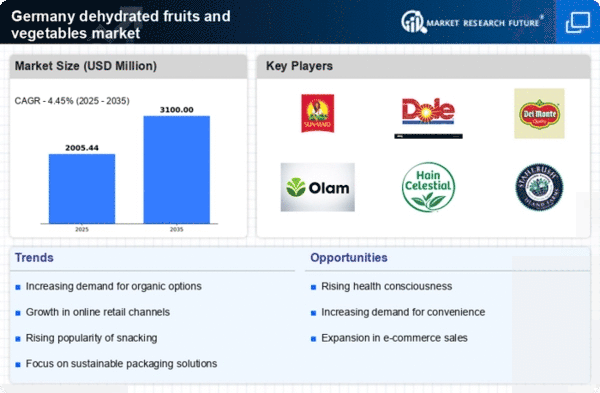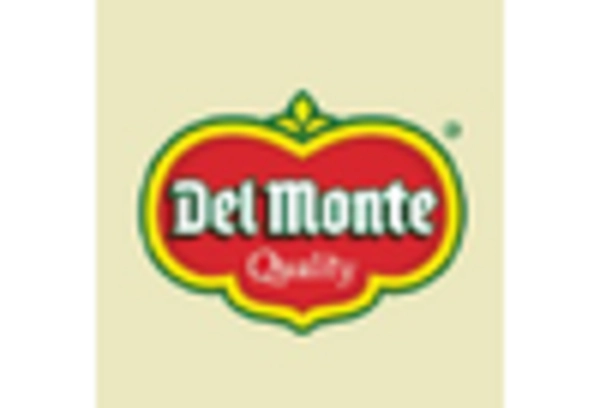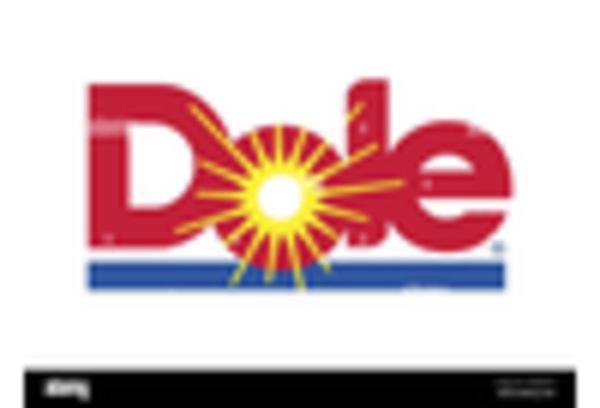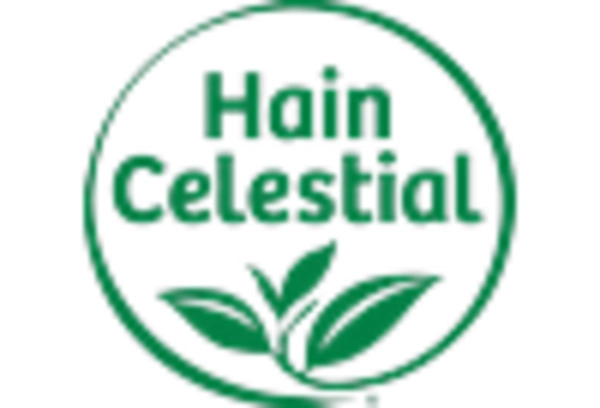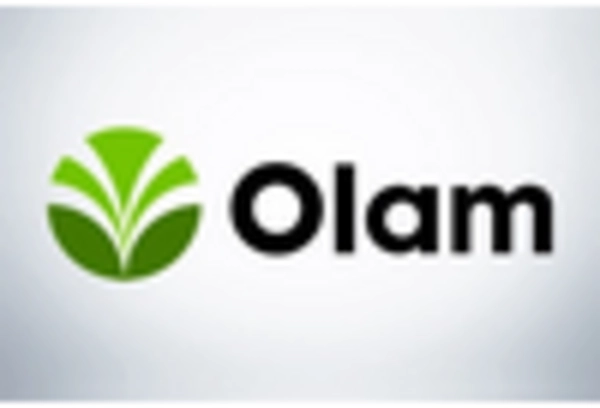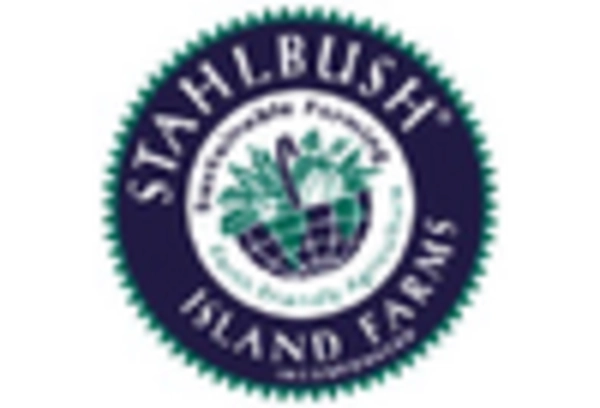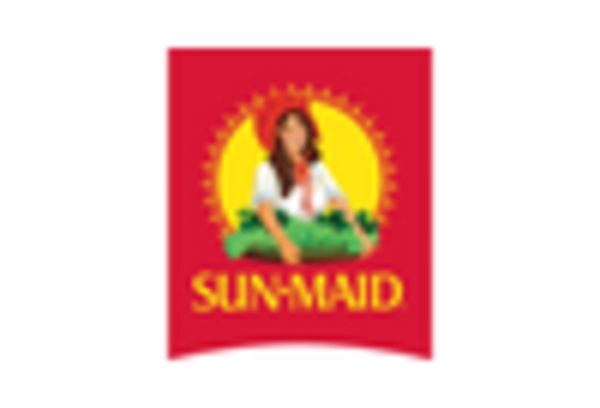Innovative Packaging Solutions
The introduction of innovative packaging solutions is playing a vital role in the dehydrated fruits-vegetables market. In Germany, manufacturers are increasingly adopting advanced packaging technologies to enhance product shelf life and maintain quality. Vacuum-sealed and resealable packaging options are becoming more prevalent, appealing to consumers seeking convenience and freshness. This shift is supported by market data indicating that products with superior packaging can command a price premium of up to 20%. As consumer preferences evolve towards products that offer both quality and convenience, the dehydrated fruits-vegetables market is likely to benefit from these advancements, fostering growth and competitiveness.
Rising Demand for Healthy Snacks
The increasing consumer inclination towards healthy eating habits is a pivotal driver for the dehydrated fruits-vegetables market. In Germany, health-conscious individuals are actively seeking nutritious snack alternatives, leading to a surge in demand for dehydrated products. According to recent data, the market for healthy snacks is projected to grow at a CAGR of approximately 8% over the next five years. This trend is further fueled by the growing awareness of the health benefits associated with dehydrated fruits and vegetables, such as high fiber content and essential vitamins. As consumers prioritize their well-being, the dehydrated fruits-vegetables market is likely to experience significant growth, catering to the needs of health-oriented consumers.
Expansion of E-Commerce Platforms
The rapid growth of e-commerce platforms in Germany is significantly impacting the dehydrated fruits-vegetables market. With the convenience of online shopping, consumers are increasingly turning to digital channels to purchase dehydrated products. Recent reports suggest that online grocery sales in Germany have surged by approximately 15% in the past year, indicating a shift in consumer purchasing behavior. This trend is particularly beneficial for niche products, such as dehydrated fruits and vegetables, which may not be readily available in traditional retail outlets. As e-commerce continues to expand, it is expected that the dehydrated fruits-vegetables market will see enhanced accessibility and visibility, ultimately driving sales and market growth.
Increased Focus on Food Safety Standards
Food safety remains a paramount concern for consumers in Germany, influencing their purchasing decisions in the dehydrated fruits-vegetables market. Stringent regulations and standards set by authorities ensure that dehydrated products meet high safety and quality benchmarks. Recent surveys indicate that over 70% of German consumers prioritize food safety when selecting products, which drives manufacturers to adhere to rigorous safety protocols. This focus on food safety not only enhances consumer trust but also encourages innovation in processing techniques. As the industry continues to prioritize safety, it is expected that the dehydrated fruits-vegetables market will experience sustained growth, as consumers feel more confident in their food choices.
Sustainability and Eco-Friendly Practices
Sustainability has emerged as a crucial factor influencing consumer choices in Germany, particularly in the food sector. The dehydrated fruits-vegetables market is witnessing a shift towards eco-friendly practices, as consumers increasingly prefer products that align with their environmental values. This trend is reflected in the growing demand for organic and sustainably sourced dehydrated products. Recent statistics indicate that the organic food market in Germany has expanded by over 10% annually, with a notable portion attributed to dehydrated fruits and vegetables. As manufacturers adopt sustainable practices, such as reducing packaging waste and utilizing renewable energy sources, they are likely to attract environmentally conscious consumers, thereby enhancing their market presence.


